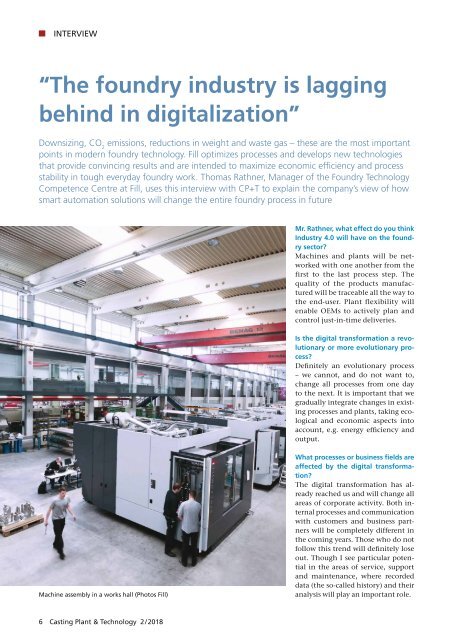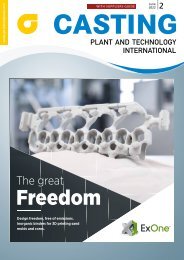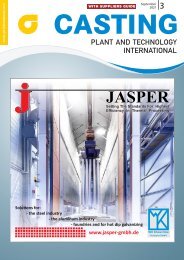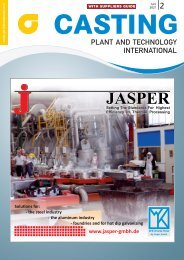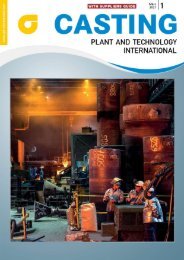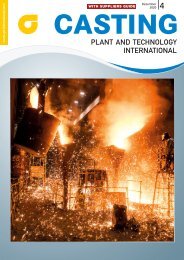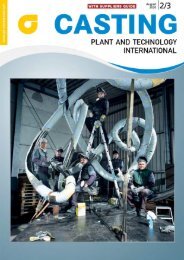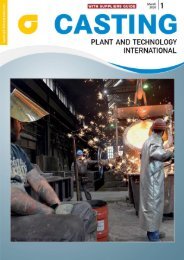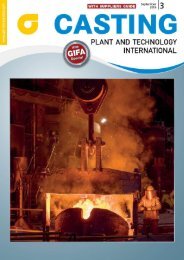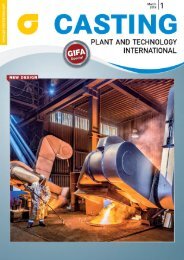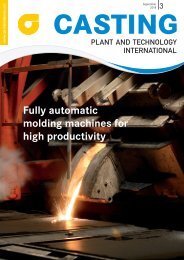CPT International 02/2018
- No tags were found...
Create successful ePaper yourself
Turn your PDF publications into a flip-book with our unique Google optimized e-Paper software.
INTERVIEW<br />
“The foundry industry is lagging<br />
behind in digitalization”<br />
Downsizing, CO 2<br />
emissions, reductions in weight and waste gas – these are the most important<br />
points in modern foundry technology. Fill optimizes processes and develops new technologies<br />
<br />
stability in tough everyday foundry work. Thomas Rathner, Manager of the Foundry Technology<br />
Competence Centre at Fill, uses this interview with CP+T to explain the company’s view of how<br />
smart automation solutions will change the entire foundry process in future<br />
Mr. Rathner, what effect do you think<br />
Industry 4.0 will have on the foundry<br />
sector?<br />
Machines and plants will be networked<br />
with one another from the<br />
first to the last process step. The<br />
quality of the products manufactured<br />
will be traceable all the way to<br />
the end-user. Plant flexibility will<br />
enable OEMs to actively plan and<br />
control just-in-time deliveries.<br />
Is the digital transformation a revolutionary<br />
or more evolutionary process?<br />
Definitely an evolutionary process<br />
– we cannot, and do not want to,<br />
change all processes from one day<br />
to the next. It is important that we<br />
gradually integrate changes in existing<br />
processes and plants, taking ecological<br />
and economic aspects into<br />
account, e.g. energy efficiency and<br />
output.<br />
Machine assembly in a works hall (Photos Fill)<br />
<br />
affected by the digital transformation?<br />
The digital transformation has already<br />
reached us and will change all<br />
areas of corporate activity. Both internal<br />
processes and communication<br />
with customers and business partners<br />
will be completely different in<br />
the coming years. Those who do not<br />
follow this trend will definitely lose<br />
out. Though I see particular potential<br />
in the areas of service, support<br />
and maintenance, where recorded<br />
data (the so-called history) and their<br />
analysis will play an important role.<br />
6 Casting Plant & Technology 2 / <strong>2018</strong>


